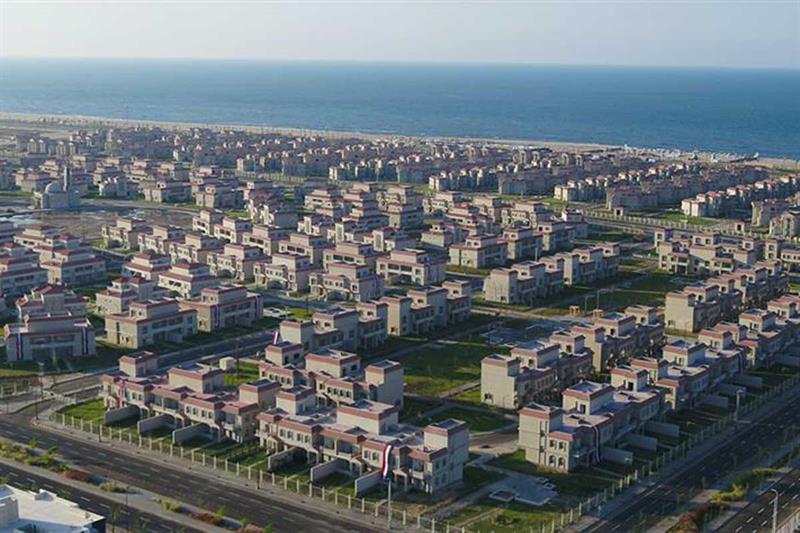Ahmed Morsy , Thursday 8 Dec 2022
Egypt inaugurated the first phase of New Mansoura, one of 30 fourth-generation smart cities planned since 2014.

New Mansoura is the latest in a series of fourth generation cities
“New Mansoura City is part of a comprehensive plan the state has been implementing in recent years to build 30 fourth-generation cities nationwide,” President Abdel-Fattah Al-Sisi said last weekend during the inauguration of the first phase of New Mansoura which overlooks the Mediterranean Sea. Other smart cities include the New Administrative Capital, New Alamein, East Port Said, Nasser City in western Assiut, and New Ismailia.
Fourth generation cities are being developed in line with Egypt’s Vision 2030 and sustainable development strategy, says the government, and aim to act as an engine for wide-ranging development goals.
The focus is on minimising environmental impacts and maximising improvements in the quality of life of citizens, said Walid Abbas, assistant minister of housing.
The target, according to Abbas, is for smart cities to have a minimum per capita share of green spaces of 15 square metres. They will also employ sustainable and environmentally friendly public transport networks.
New Mansoura will be a sustainable city, a tourist and service capital and a centre of attraction for the population of the Delta, says Housing Minister Assem Al-Gazzar. It will also be able to adapt to climate changes, not least rising sea levels.
Egypt is one of the world’s most climate change affected countries, a result of rising sea levels and the unexpected impact of climate changes on the River Nile’s headwaters, says former irrigation minister Mohamed Abdel-Ati. Abdel-Ati highlighted the adverse effect of climate change on the fertile Nile Delta, with rising sea levels threatening greater salinity and, in worst case scenarios, inundation.
New Mansoura is an example of the kind of urban development envisaged by the Sustainable Cities Initiative which Egypt launched, in cooperation with the United Nations Development Programme, at COP27. The city’s water sources, says Abdel-Ati, will include a groundwater desalination plant with a capacity of 1,000 cubic metres per ßday, and two irrigation water treatment plants. A seawater desalination plant with a production capacity of 160,000 cubic metres per day, is also being built on 24 feddans. The first desalination plant in the Delta, it is budgeted at LE1.4 billion.
The city will be home to four universities, and when complete will stretch for nearly 15 kilometres along the Mediterranean coast. It is being built in four stages, the first of which, covering 2,063 feddans, represents 40 per cent of the total area of the city.
Assistant Minister of Housing Abdel-Khalek Ibrahim stressed the importance of the development in alleviating overcrowding in the Delta where further urban growth is all but impossible. New Mansoura, he says, marks a qualitative leap forward in terms of housing and quality of life for its residents. Investments in the city over four years have amounted to LE24 billion.
Building such new cities is not a luxury but a necessity, said President Al-Sisi.
On 27 November, the Central Agency for Public Mobilisation and Statistics (CAPMAS) reported that Egypt’s population had grown by more than 250,000 people in the previous 56 days, reaching 104.257 million. It will reach 192 million by 2052 should current growth rates continue.
“Before 2014, we had a total of 22 cities, and we have been working since then to establish 30,” said Al-Gazzar. He noted that the population growth rate in new cities has now reached 500,000 annually and that the 18,000 feddans given over to new urban development in 2014 had grown to 166,000 feddans annually.
Of the estimated LE100 billion already spent on new cities, 70 per cent of the total went towards services, roads, and utilities rather than housing.
*A version of this article appears in print in the 8 December, 2022 edition of Al-Ahram Weekly
